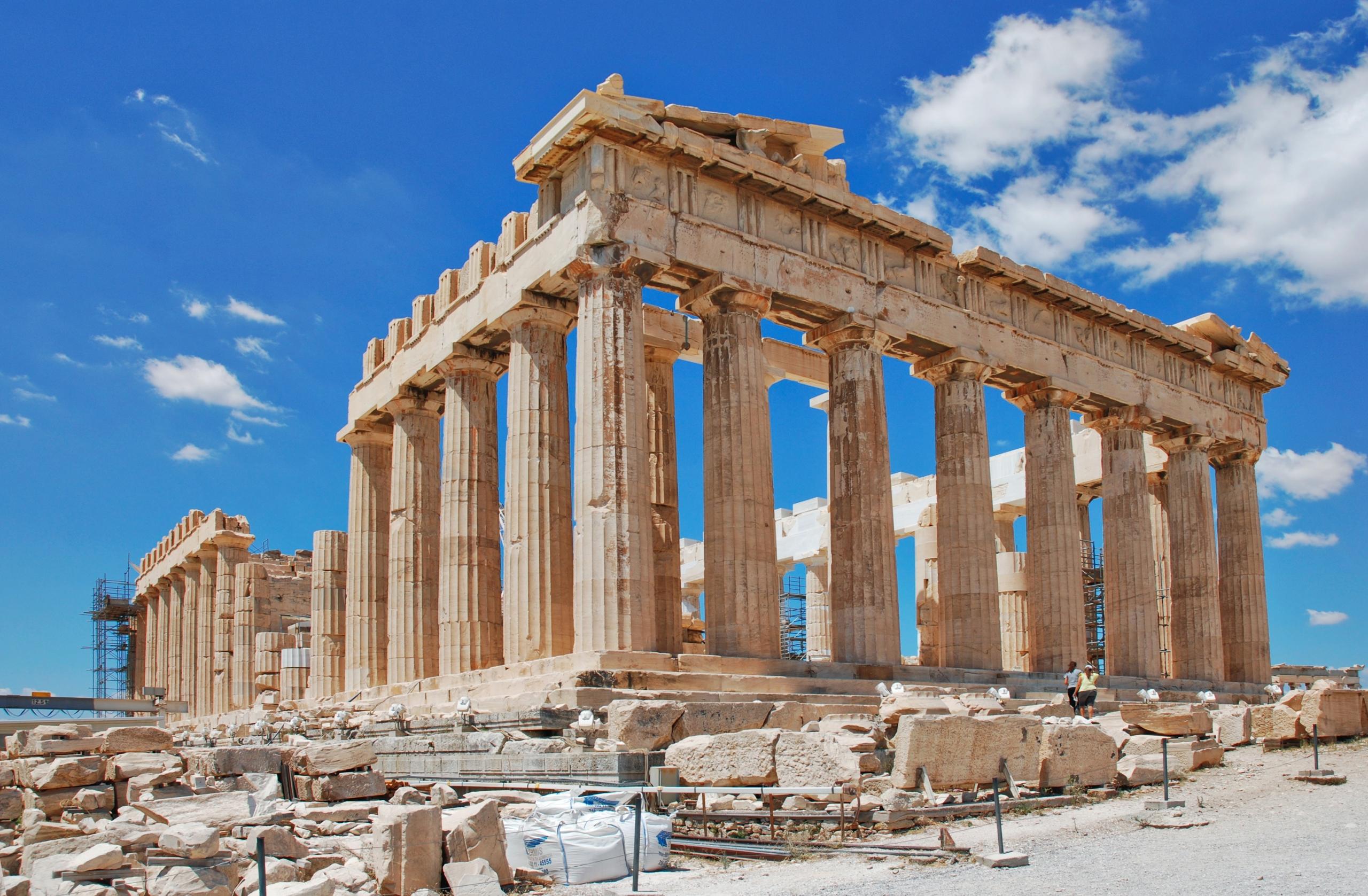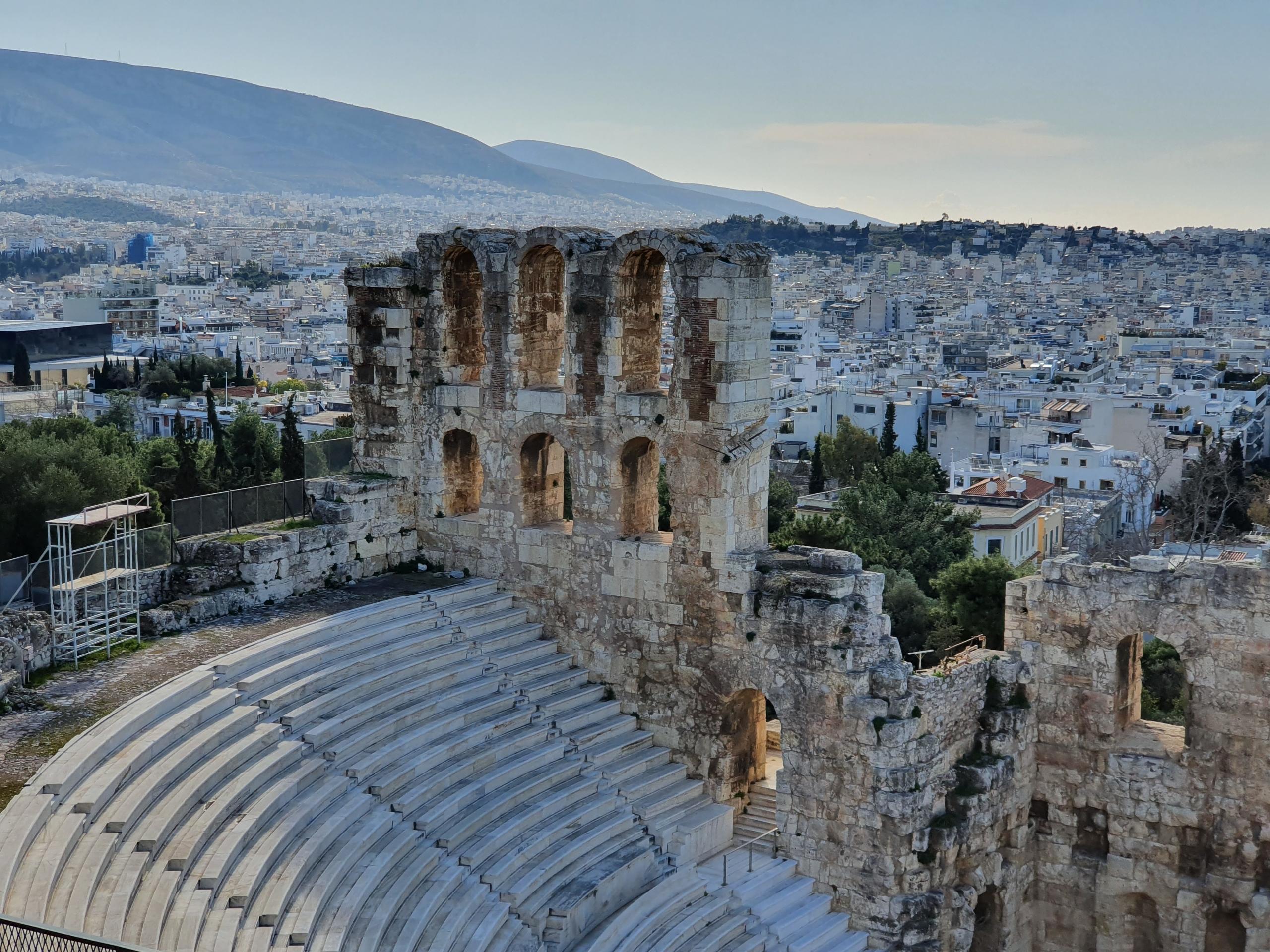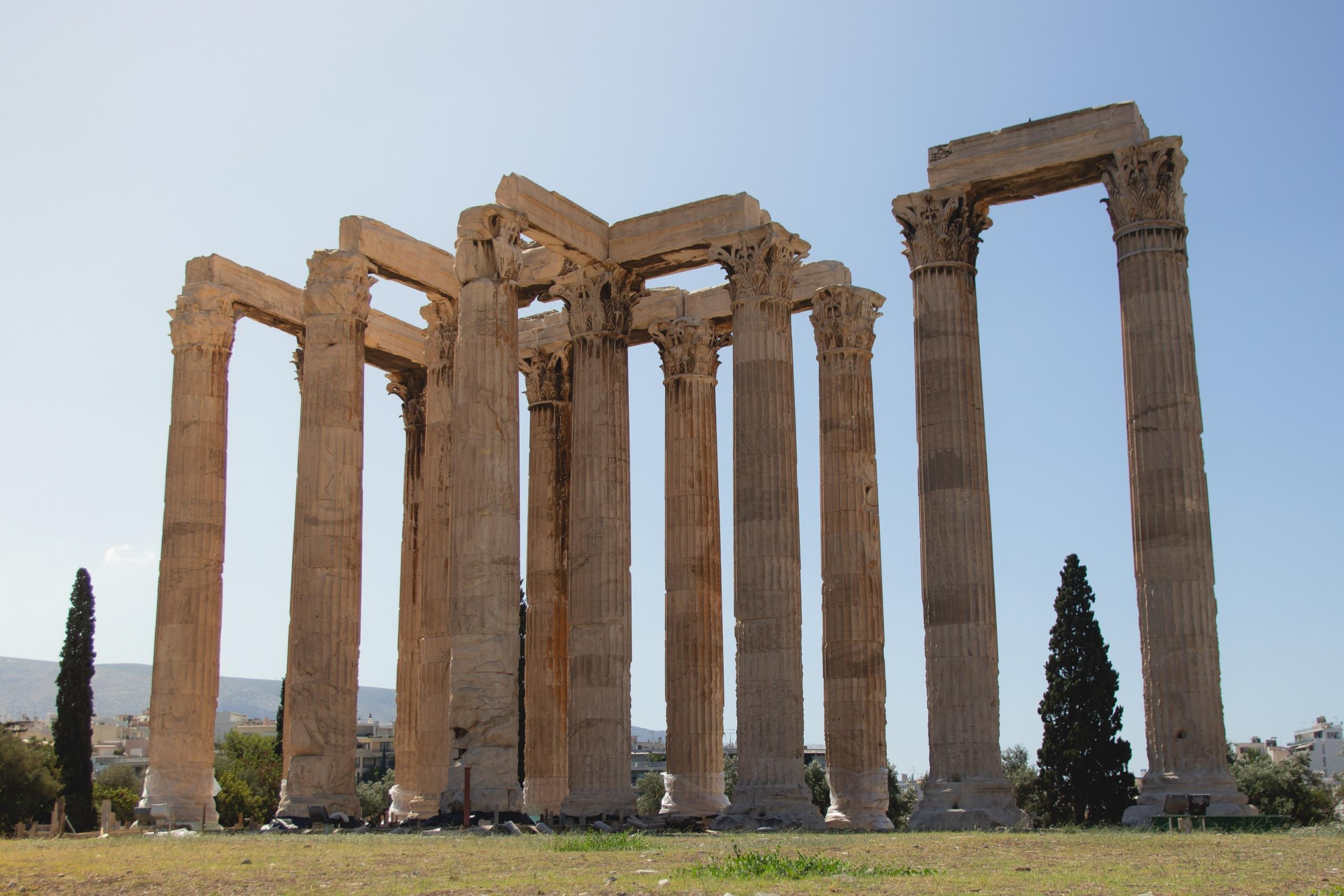The Greek Empire has had a major impact on the world, even though, as with the contributions of other ancient civilisations, we may not consciously be aware of it. However, many of us, today, will be able to recall a mythological tale or name, at least, one Greek philosopher.
The ancient Greeks even gave us several Olympic events, some of which hark back to when they did foot races, javelin throwing, discus throwing and marathon running.
Then, we can also consider Greek architecture.
One of the world’s most celebrated structures is the Parthenon (in Athens). It is so admired and renowned that you can visit a duplicate Parthenon in Tennessee (US) and one in Regensburg, Germany, where it is called the Walhalla Memorial.
In truth, the founding fathers of the United States of America must have had a great love or admiration for the Greek Empire, since they have several place names that have a Greek origin: Antioch, Athens, Sparta and Smyrna, to name a few.
It is not only Americans who celebrate things which are Greek; the Scots modelled the National Monument of Scotland – called Edinburgh’s folly by some – on Athena’s temple.
The Greek people have given the world a vast treasure – archaeologists have uncovered evidence of their artistry and poetry, deities and philosophers – over many centuries.
The history of the Greek people is so great that several articles would still only serve as a drop in the ocean. Instead, let’s focus on the greatest achievement of the Greek civilisation: Greek culture became the foundation upon which western culture was built!
Further, there is little doubt that you know that language and science, politics, philosophy, education systems and the arts – literature, performing and visual arts – all originated in ancient Greece.
Today, we'd like to present you with a sampling of what life was like in Ancient Greece.
Want to give private lessons?
Join the Superprof community and share your knowledge with inquiring and motivated students.
The Ancient Greek Civilisation: A Timeline
Of greater importance is the question: what brought about the noteworthy social evolutions that shore up our present-day western societies?
The original inhabitants of Greece were hunters, archaeological finds dating human activity back to the Neolithic period, around 6 000 BC.
While a great deal was achieved during this period – establishing a tradition of live-stock farming and pottery, it still pre-exists the period commonly referred to as ‘ancient’, which spanned the period 800 – 500 BC.
By that time, Minoan art had established a rich legacy and the Greek Dark Ages (1 100 – 750 BC) were drawing to a close. The later age describes the period between the fall of the Mycenaean civilisation and the renaissance of written Greek.
While the Mycenaeans had made great advances in engineering, architecture and military infrastructure, they were overrun by the Dorian, who deployed iron weaponry.
The Dorians came from the mountainous region of south-west Macedonia. They battled their way through parts of central Greece, in effect, causing the first decline of the Greek Empire.
Mycenae’s strict political systems, rigid social hierarchies and closely-controlled economic ventures, propelled by a palace-centred leadership fell into disorder, driving Greece into their Dark Age period.
People, at this time, lived in small farming villages which were spread throughout the region.

While there are no records available of this period, it is thought that major shifts away from palace rule, toward a more decentralised form of government, allowed the people regroup and re-organise.
There is archaeological evidence of nation-states emerging after 800 BC, indicating that the Greek civilisation was definitely experiencing a rebirth at that time.
This period is the Ancient, (or Archaic) Era and finds itself between the Greek Dark Ages and the Classical Period (500 – 336 BC).
These, roughly, three centuries witnessed the cementing of the foundations of democracy, accompanied by an explosion of academic and intellectual growth, as well as unmatched artistic expression.
Let us now turn our attention to the living conditions which enabled this growth.
After the Dark Ages: A Coming Together
The end of the Mycenaean Civilisation is indicated by the phrase ‘the fall of the palaces’ – a time when the people fled from the cities they had built.
Some came together and wandered about the country, living as nomads, while others established small farming communes. These, over a relatively short space of time, developed into ‘poleis’ or city-states (with city walls and units to defend the city) and also launched trade relations with neighbouring city-states (poleis).
It is from the Greek word ‘poleis’ that the word politics is derived.
This city-states had to maintain a semblance of diplomacy, since they lived quite close to one another and traded with one another on a regular basis, while they still followed their own laws, political structures and cultures.
A great deal of upheaval followed, with oligarchs being appointed as leaders (or appointing themselves), being overthrown, only to be followed by tyrannical rulers.
This cycle continued – and even spread into nearby Italy – into the 6th century when a new form of governance arose: democracy!
Setting up this new type of government required a whole new legal system to define and regulate it. This was a monumental task, but secured a measure of economic stability in the country again.
This stability then led to population growth and the Greek city-states started taking the shape of metropolises again. At the same time, a period of frenetic colonisation was taking place across the Mediterranean, into Anatolia (today’s Turkey).
Discover what life was like for the indigenous people of Australia.
Want to give private lessons?
Join the Superprof community and share your knowledge with inquiring and motivated students.
Life During the Archaic Period
Despite all of the philosophical and political advances, these societies were still largely agrarian. This meant that people seldom had leisure time, especially around the periods of sowing and reaping, the olive harvest demanding the longest hours of labour.
The olives were beaten off the tree branches with sticks, gathered and processed into oil for lighting or cooking, made into beauty products or preserved for consumption at some time later on.
So, too, the grain harvest, which had to, first, be cut with a sickle, then threshed and finally pounded with a pestle, so as to remove the husks. Then, storage had to be effected.
Once all of this hard labour was done, if they had a spare moment they could perform religious observances and, lastly, enjoy one of several pastimes.
A Time for Leisure
For special occasions or at times of celebration, Grecians would enjoy a play at a theatre. Even today, Greek comedies and tragedies are still very popular; in fact, we were gifted with our first tragedy by Thespis, the Greek poet.
Widely recognised as the world’s first actor, his name was the basis for the word ‘thespian’.
If a citizen did not enjoy theatre, he or she could participate in discourses with peers, discussing either philosophy or politics.
There were also sedentary games – checkers, dice and bones were also quite popular. If one preferred to move, a quick game of marbles was recommended.
Young boys, who might have preferred something more energetic, besides playing marbles, could engage in a game very similar to hockey. Yes, only boys are mentioned, because they played in the nude, so, young girls were not allowed to participate.

Women in Ancient Greece
While life for women and girls was not one of desperation and penury, it was definitely not equal to that of men in Ancient Greece.
There were few economic opportunities for women – forbidden to them was the selling of pottery or olive oil at the market, although the males in the family could turn a profit from selling the cloths the ladies had woven or the pottery or oil they had made.
Females were also forbidden from enjoying the theatre – neither as actors or members of the audience. Female roles in the Greek tragedies were played by men in costume.
A young girl would not even be allowed to run alongside her brother and his group of friends, because females were not expected to seek and enjoy physical exertion.
Women’s position in society worsened during the Archaic Period.
While women had owned property, up to that time – an indication of independence and wealth – in the period that followed, the Classical Period, women were regraded as the property of the males, in essence, a part of the household which belonged to the male.
However, there was still an avenue that young ladies could follow to assert an independence of sorts: she could become a priestess.
The Greeks and Religion
The Greek people, like many other civilisations, contemplated the meaning of life and their origins. The existence was given purpose and depth by the gods that they entertained.
What is known as Greek mythology today, came about because of the way that the ancient Greeks honoured their gods. Other ancient societies also placed high importance on mythology and religion.
They would tell stories and ensure that those stories were recorded in writing. The story of Hercules is one such story and shows how humans must persevere to earn a place among the gods, even though, as they then believed, he had descended from the gods.
Gods and religion, in ancient Greece, were an integral part of everyday life.
People would set a place, at the dinner table, for the household goddess, Hestia, and worship at an altar set up for her.
They also set up temples to honour their other gods:
- Zeus:ruler of the gods and god of the sky
- Aphrodite: goddess of love and beauty; wife of Hephaestus
- Apollo: god of prophecy; twin brother of Artemis
- Ares: god of war; mostly worshipped in Thracia
- Athena: goddess of war, wisdom, art, industry and justice. Zeus’ favourite child
- Artemis: goddess of the moon, hunting and animals
- Demeter: goddess of the harvest whose daughter, Persephone, was abducted by Hades
- Dionysius: god of grapes and wine-making; he was revered everywhere that grapes grew
- Hephaestus: initially cast down from Mount Olympus, he regained their good graces by forging thrones of gold for all of the gods
- Hera: wife of Zeus; patron city was Argos
- Hermes: messenger of the gods, he had winged shoes and hat
- Hestia: the aforementioned household goddess
- Poseidon: god of the sea, second to Zeus in power; father of Triton
Now that your knowledge of the Greek gods has increased, why not discover the deities of the Incan civilisation?
Besides paying homage to the many Olympian gods, each city-state identified its own individual god to protect them and, sometimes, the city was named after that deity – Athens being a perfect example of this.
Lastly, the inaugural Olympic games were held as a tribute to the Greek gods, apparently to Zeus, during the Archaic Period.

The Archaic Period Draws to a Close
Although short-lived - only about 300 years – this was a relatively peaceful period in Greek history, with about 160 years being truly progressive.
Fleeing from the Dorians, the Greek people set themselves up in small clans and over time, once again, built up city states. The migrations of the people during the Archaic Period had a marked impact on Greek literature and art. Greek styles were spread far and wide and people, from everywhere, were encouraged to participate in the creative revolution of the time.
Homer produced his Odyssey and Iliad during this period and sculptors created koria and kouroi, precisely proportioned human figures, to commemorate the dead. Mathematicians and scientists also made progress: Pythagoras discovered his famous theorem, Xenophanes described the discovery of fossils in his writings and Anaximandros developed a theory of gravity.
The artistic, economic, political and technological advances of the Archaic period prepared the Greek city-states for the colossal changes of the ensuing centuries.
However, this period of relative peace and progress was soon darkened by a series of wars: the Ionian Revolt, the Peloponnesian War, the Persian wars and others. These all exacted quite a toll on the Greek people and their resources.
Still, is it not remarkable that, even for such a short period, ancient Greece had such a marked effect on the rest of the world?
Is it not even more amazing that it still impacts on our societies and beliefs today?
If you're curious about ancient cultures, why not discover the history of the Aztecs and the Mayan people?
Want to give private lessons?
Join the Superprof community and share your knowledge with inquiring and motivated students.
Summarise with AI:





